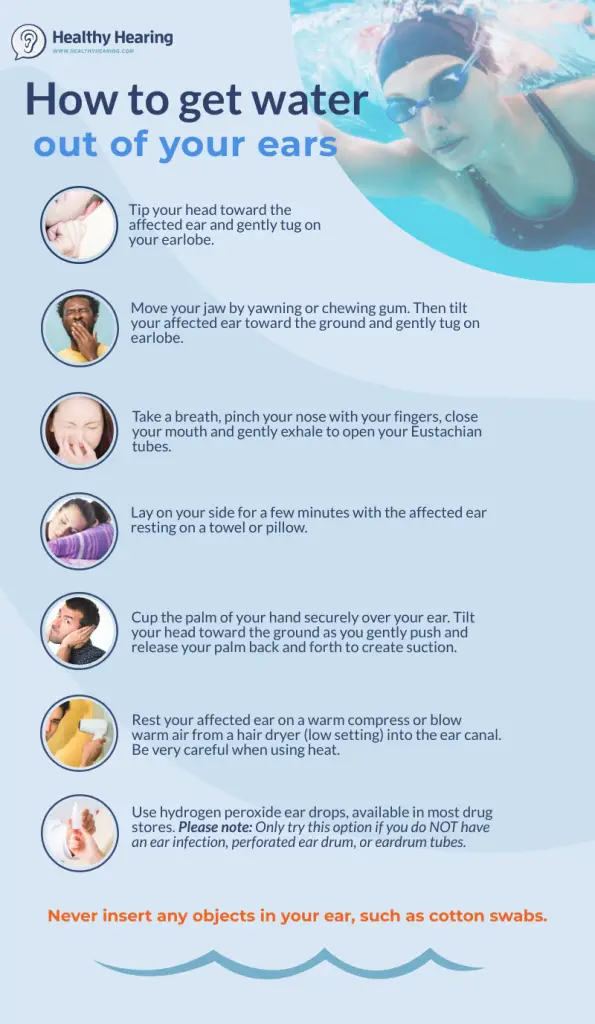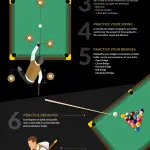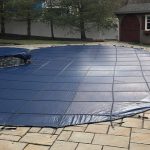Swimming is a popular activity during the summer months, providing a refreshing escape from the heat. However, one common annoyance that swimmers may encounter is getting water trapped in their ears. If you’ve ever experienced this, you know how uncomfortable it can be. The good news is that there are several effective methods you can try to get pool water out of your ear.
1. Gravity
The simplest and most natural way to remove water from your ear is to use gravity. Start by tilting your head sideways, with the affected ear facing the ground. Gently tug on your earlobe and hop up and down on one foot. The combination of gravity and movement can help dislodge the water and allow it to flow out of your ear. Be patient and repeat this process a few times if needed.
2. Valsalva Maneuver
The Valsalva maneuver is a technique that involves gently blowing air out of your nose while pinching your nostrils shut. This action creates pressure in your nasal passages, which can help to force the water out of your ear. To perform the Valsalva maneuver, take a deep breath, close your mouth, and pinch your nostrils shut. Then, gently blow out through your nose. Be careful not to blow too forcefully, as it can cause damage to your eardrum.
3. Yawning or Chewing
Yawning or chewing can also help to equalize the pressure in your ears and potentially dislodge trapped water. Try yawning or chewing gum to stimulate the muscles in your ear and encourage the water to drain. This method may not work for everyone, but it’s worth a try.
:max_bytes(150000):strip_icc()/can-i-prevent-swimmers-ear-1192235-4ac611527fa043fcb7f0f2b3ef71ec25.jpg)
Credit: www.verywellhealth.com

Credit: blog.myswimpro.com
4. Warm Compress
Applying a warm compress to your ear can help to soothe any discomfort and encourage the water to evaporate. Dip a clean cloth or towel in warm water, wring out the excess moisture, and then place it over your ear. Hold the warm compress against your ear for a few minutes, and then tilt your head to allow the water to drain out. Repeat this process as necessary.
5. Hydrogen Peroxide
Hydrogen peroxide is a commonly used solution for removing excess earwax, but it can also be effective in removing trapped water. Mix equal parts of hydrogen peroxide and water, and then use a dropper to carefully administer a few drops into your ear. Tilt your head to the side and let the solution sit in your ear for a few minutes. Then, tilt your head in the opposite direction to allow the water and solution to drain out. Be sure to follow the instructions on the hydrogen peroxide bottle and consult a healthcare professional if you have any concerns.
6. Isopropyl Alcohol and Vinegar Solution
Another solution that can help to dry out your ear is a mixture of isopropyl alcohol and vinegar. Combine equal parts of isopropyl alcohol and white vinegar, and then use a dropper to apply a few drops into your ear. Allow the solution to sit in your ear for a few minutes, and then tilt your head to let it drain out. This solution helps to evaporate the water and prevent the growth of bacteria.
7. Over-the-Counter Ear Drops
If the water in your ear persists or causes discomfort, you may consider using over-the-counter ear drops specifically designed to remove excess water from the ear canal. These drops typically contain a drying agent, such as isopropyl alcohol or glycerin, which can help to evaporate the water. Follow the instructions on the packaging carefully and consult a healthcare professional if you have any concerns.
8. Avoid Q-Tips
While it may be tempting to use a Q-tip or cotton swab to remove the water from your ear, it’s best to avoid doing so. Inserting anything into your ear can push the water further in and potentially cause damage to your eardrum. Instead, focus on the methods mentioned above, which are safer and more effective.
Conclusion
Getting water trapped in your ear after swimming can be a frustrating experience. However, by following these simple and effective methods, you can quickly and safely remove the water from your ear. Remember to stay patient and avoid using any objects that could potentially harm your ear. If the water doesn’t come out or if you experience pain or discomfort, it’s important to seek medical attention. Enjoy your time in the pool without the worry of water-logged ears!





